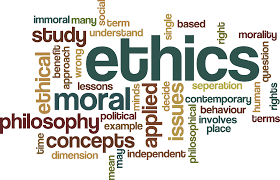1er Année Ingénieur
Faire découvrir à l’étudiant, dans une première étape, l’ensemble des filières qui sont couverts par le Domaine des Sciences et Technologies et dans une seconde étape une panoplie des métiers sur lesquels débouchent ces filières. Dans le même contexte, cette matière introduit les nouveaux enjeux du développement durable ainsi que les nouveaux métiers qui peuvent en découler
- Enseignant: Sakri Asma

This course is designed for first-year engineering students and aims to support their transition from secondary education to university life while preparing them for the responsibilities of adulthood. The primary objective is to help students adapt to the university environment by fostering a strong foundation in ethical awareness and personal responsibility. This early introduction plays a crucial role in helping students meet the demands and challenges of higher education while instilling the core values that will guide them throughout their academic journey and beyond.
- Enseignant: Abdelbaki Yousra
this course aims is to facilitate an individual’s immersion in student life and their transition into a responsible adult. It helps to develop students' awareness of ethical principles. Introduce them to the rules that govern university life (their rights and obligations towards the university community) and in the world of work, to raise awareness of the respect and valorization of intellectual property and explain to them the risks of moral evils such as corruption and how to fight them.
- Enseignant: Aroun Imène
This course is aimed at first-year S.T. engineering students. It aims to lay the foundations for future research, by acquiring the basic mathematical foundations, analysis and algebra, and their applications. analysis and algebra, and their applications. The course is divided into five modules Enabling students to acquire the mathematical skills needed to pursue their studies.
- Enseignant: Lounis Selma

 Chemistry is the study of matter and its properties, the changes that matter undergoes, and the energy associated with those changes. So what is matter? Matter is everything around us that has mass and volume. Matter can be any phase - solid, liquid, or gas. In this unit, we explore the properties, phases, and how we measure matter.
Chemistry is the study of matter and its properties, the changes that matter undergoes, and the energy associated with those changes. So what is matter? Matter is everything around us that has mass and volume. Matter can be any phase - solid, liquid, or gas. In this unit, we explore the properties, phases, and how we measure matter.
- Enseignant: Aroun Imène

- Enseignant: BOUMAD Souad

To introduce students, in the first stage, to all the fields covered by the Field of Science and Technology, and in the second stage, to a range of careers that lead to these fields. In the same context, this subject introduces the new challenges of sustainable development as well as the new careers that can arise from them.
- Enseignant: OMARI Souhila
In mathematics, probability and statistics are two important branches. For a start, we can say that probability is about chance. Although we can investigate the likelihood of particular outcomes, we cannot predict how an event will turn out. In contrast, statistics facilitate the representation of complex facts. It is concerned with the collection of data, its description, and its analysis, which often leads to the making of decisions.
This course has been written for students in engineering and related fields. Its chapters and ideas are given progressively, as much as possible, to lead students to build basic knowledge. The course is presented as follows:
Part one: Probability
Chapter 1: Combinatorial analysis
Chapter 2: Random variables
Chapter 3: Discrete and continuous probability distributions
Part two: Statistics
Chapter 1: Descriptive statistics (univariate data, bivariate data)
Chapter 2: Estimation
Chapter 3: Hypothesis testing
The reader is expected to know the basic rules of calculus.
- Enseignant: OUAKID Abdelhadi

- Enseignant: OMARI Souhila
